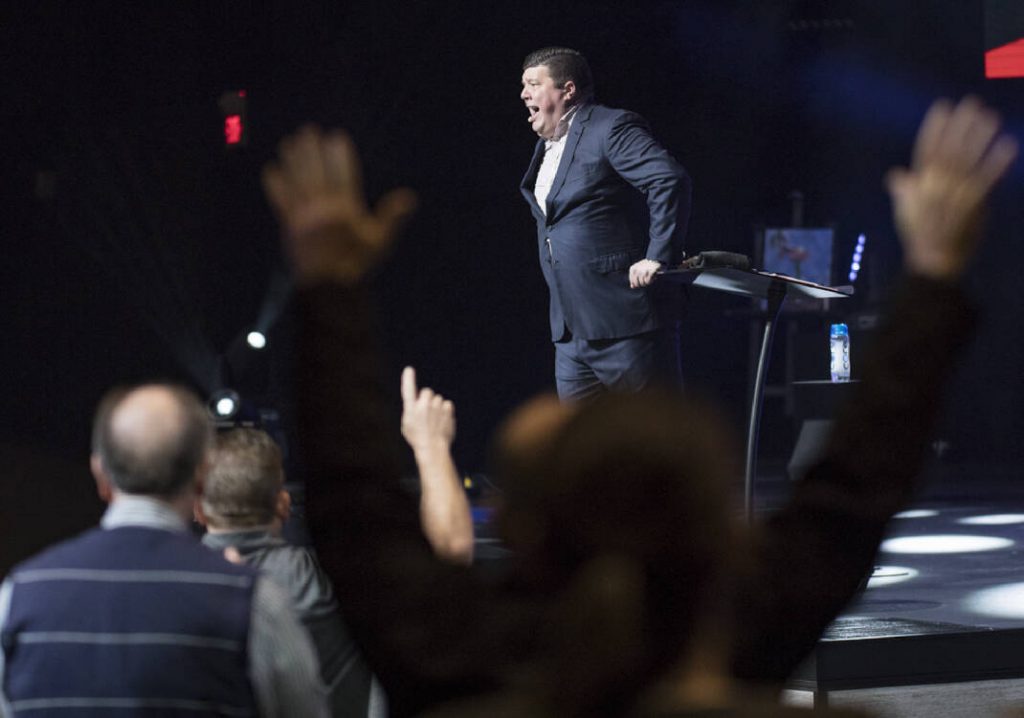News
This section is dedicated to sharing news that may relate to biblical information, religious culture, personal advice, trends and more…
5 Guidelines for pastoral care during the coronavirus outbreak
In what capacity can clergymen, clerics, advocates, and teachers accompany people pastorally through this valley of nervousness, dread, and demise?
Definitely not the every day task of a religious leader. However, there are ways to tactically address such matters and overcome the obstacles involved. Therefore, the following is what we define as the 5 quick tips of advice needed to maintain self-control and inspire others to do the same thing.

- Review and follow the safety measures. The Centers for Disease Control, the World Health Organization, and your state health department are meticulously reviewing the situation. Keep yourself healthy. (Like the airline steward says: when the breathing apparatuses drop, put your own veil on first before helping any other individual.) Set the example for others to appear without fear. Fundamental and precise data is generally accessible, however some of the time when uneasiness is high, in any event, searching for the essentials turns out to be particularly testing. Giving it very well may be part of pastoral consideration.
- Harness the mind and body against anxiety. Regardless of whether you daydreamed during a pastoral class in theological school or not, you may have heard others giving advice on the same regard. That is because well rested, peaceful and genuinely present individuals are liberated from nervousness which induces trust and gives the correct sort of care in any emergency, from something as simple as a papercut to a pandemic season. For parental figures to show up non-restlessly implies dealing with our own sentiments, so we neither attempt to escape the circumstance nor flood it with our own feelings or tensions. People feed off of the vibes and energies of those who emit placidness and composure in order to lessen their own nerves and concerns.
- Be there for others, regardless of whether it’s not face to face. Maintaining a strategic distance from close contact is turning into a mantra right now, especially among individuals older than 60. There are groups of individuals that will encounter social disgrace around the disease. Nowadays, we can appear for individuals throughout digital technology. Surely not the same as the tangible experience of holding a hand. However we are blessed to have this reasonable alternative. You are probably already connected with individuals on different social media platforms, so use them—with care—to offer your help.
- Listen with profound care. Regardless of the outcome that critical situations may result with, one of the most lasting and amazing blessings we can offer is to listen. By listening we encapsulate the adoration for the consecrated, affection for a larger community, the love of life itself. Merciful listening is actually what individuals need when they are confronted with the mind-boggling, wild conditions of an emergency.
- Discover approaches to build community. The human nature of wanting to be useful is significantly powerful. Despite stressing situations may lead a few people to pull back, it can likewise be a noteworthy chance to arrange and bolster one another. Pastors who pass on leadership and creativity can arrange individuals in sorted out, mindful and economical ways.
Schools, libraries and gyms are shut down. Why are some churches still open?
More than 1 in 10 consistent church followers abide to services at their house of worship and confirm they are still doing so instead of staying home, according to new research.
On Sunday March 15th, Redemption to the Nations Church Pastor Kevin Wallace preached to his congregation about trusting God to help battle the COVID-19 outbreak in Chattanooga, Tenn. Most churches in Hamilton County canceled services because of the pandemic season but Redemption to the Nations remained open.

Weeks ago President Donald Trump said he wanted to see churches filled with their natural attendance rates by Easter. Some houses of worship seem to be close to achieving those requests.
Society might not be well aware yet but several churches have opted to defy the social distancing measures by maintaining in-person services with just few modifications. Some religious establishments have kept things running only because lawful bans have yet not been implemented in their state or because they’ve been authorized as an exemption.
A recent national survey confirmed that 12% of the respondents were tied to houses of worship which services were still active at the time and another 17% of the survey takers were actually still attending in-person church activities.
Despite the survey figures were low, they were alarming enough to concern the rest of the American population which has stuck to the ground rules notified across all news and media channels throughout the beginning of this year since the outbreak has only gotten worse.
Maggie Garrett, the vice president for public policy for Americans United for Separation of Church and State made statements about these observations agreeing that worship entities do in fact form part of the big picture for many religious American families but should be collaborating with migrating all activities online to prevent further spreading of the disease.
“If there are mass gatherings at churches and other houses of worship, it doesn’t just put people who attend in danger. It puts people in the community at large in danger,” she said.
In response, some worshipers specified that if various retail stores and office buildings have been considered important enough to remain open then houses of worship should also be deemed as an essential need.
What is the final verdict? Well, houses of worship are indeed protected by robust religious freedom laws on a federal level and the majority of states. However, legal experts debate with the argument that the US government has absolute authority to force shutdowns of this nature for the sake of public health.
Although houses of worship are protected by strong religious freedom laws at the federal level and in most states, legal experts argue it’s within the government’s authority to force houses of worship to follow group gathering bans in the interest of public health. So yes, the government can force churches to close if need be, which happens to be the case. Will things get messy? Only time will tell.
Coronavirus: Bible expert warned of pandemic in 2005 – ‘Return of the Plagues’
With the arrival of the coronavirus pandemic, some Christians believe it is a sign that the end of days has begun which relates to the Bible’s prophecy in Book of Revelation. COVID-19 which originates from China, has put an end to more than 4K lives since December and things haven’t exactly gotten better.
The rapid spread and impact of the disease strongly resembles the behavior of a biblical calamity according to many religious worshipers.

These are some of the things that spiritualists have been saying on social media platform Twitter to get an idea how shook up things are with human reactions:
- “This plague of coronavirus shaking the world now mercilessly is a mystery hidden in the Bible prophecy of the beginning of birth pain in Matthew 24 #BreakingOfTheSeals”
- “Ebola, corona virus, famine, natural calamities all culminated in an End TIME foretold in Bible.”
- “Why are you surprised about the Corona virus? God told you it would happen. Read the Bible.”
Furthermore, gossip on behalf of certain Christian Evangelists claim the COVID-19 outbreak depicts one of the four horsemen of the Apocalypse. That would mean that the arrival of such would precede to the end of the world.
However, topics of discussion like these are not new. In fact, rumors of plagues and pestilence have been warned off by Christian writers long ago since 2005. Back in 2005, an article release for The Trumpet from Fred Dattolo stated “galloping hoof beats of the four horses are getting ever louder and closer” as the end of days making its approach.
Diving more deeply into the article, Dattolo mentioned how the four horsemen which are representative of death, war, famine and pestilence actually had real-world analogues. It is said that the fourth horseman rides a pale white or green horse, spreading disease to a quarter of the world’s entire population.
Mr Dattolo said: “The four horsemen are depicted in the book of Revelation Chapter 6 as the first four of seven ‘seals’. These seals are benchmarks of end-time events leading up to and including the return of Jesus Christ.”
The viral disease strongly impacts the respiratory system with flu-like reactions and pneumonia as the final stage of harm. COVID-19 can definitely take on fatal results on those who are infected but only upon a certain demographic. Those who are untreated or have carried pathological conditions are the ones who have been defined as the higher risk population.
Nonetheless, COVID-19 has shown low mortality rates compared to the amount of infections that have actually been documented worldwide. That being said, makes the virus show very little probabilities of being a link to the actual biblical plague prophecies.
According to the World Health Organization (WHO): “Illness due to COVID-19 infection is generally mild, especially for children and young adults. However, it can cause serious illness: about one in every five people who catch it need hospital care. It is therefore quite normal for people to worry about how the COVID-19 outbreak will affect them and their loved ones.”
